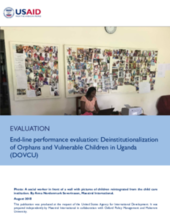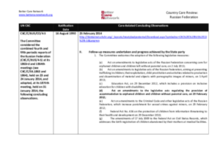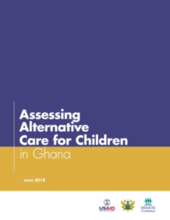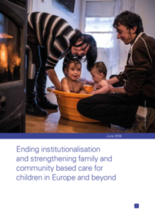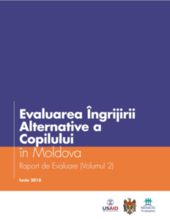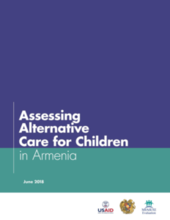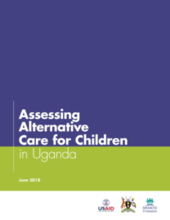Displaying 241 - 250 of 691
This film from Lumos is about the people who know that there is an alternative to institutional care, and who are working hard to make it happen.
This video from the Economist explores the history of institutionalization in Romania and the efforts now underway to transition to family-based care and small group homes for children.
The objective of this evaluation is to assess the performance of the “Deinstitutionalization of Orphans and Vulnerable Children Project in Uganda” (DOVCU) with regards to the creation of sustainable changes in the lives of two beneficiary groups, namely 43,000 vulnerable children living in targeted households and 2,000 children at risk as a result of an integrated package of support.
This country care review includes the care related Concluding Observations adopted by the Committee on the Rights of the Child and the Committee on the Rights of Persons with Disabilities.
This report presents the findings of an assessment of Ghana's national alternative care system aimed at supporting the government and its partners in continuing to advance alternative care.
This document was developed by UNICEF to influence policymakers in the European Union to strengthen their commitment to assisting governments’ transition from institutional care to community-based care in the next Multi-Annual Financial Framework (2021-2027).
This report, in the Moldovan langauge, presents the findings of an assessment workshop aimed at informing action planning to address priority needs identified in alternative care for children in Moldova.
This report presents the findings of an assessment workshop aimed at informing action planning to address priority needs identified in alternative care for children in Moldova.
This report presents the findings of an assessment workshop aimed at bringing together key stakeholders—decision makers, policy developers, service providers, civil society representatives, and donors—to assess and identify the main care reform areas in Armenia in which action is needed.
This report presents the findings from an assessment workshop aimed at informing action planning to address high-priority needs identified in alternative care for children in Uganda.

